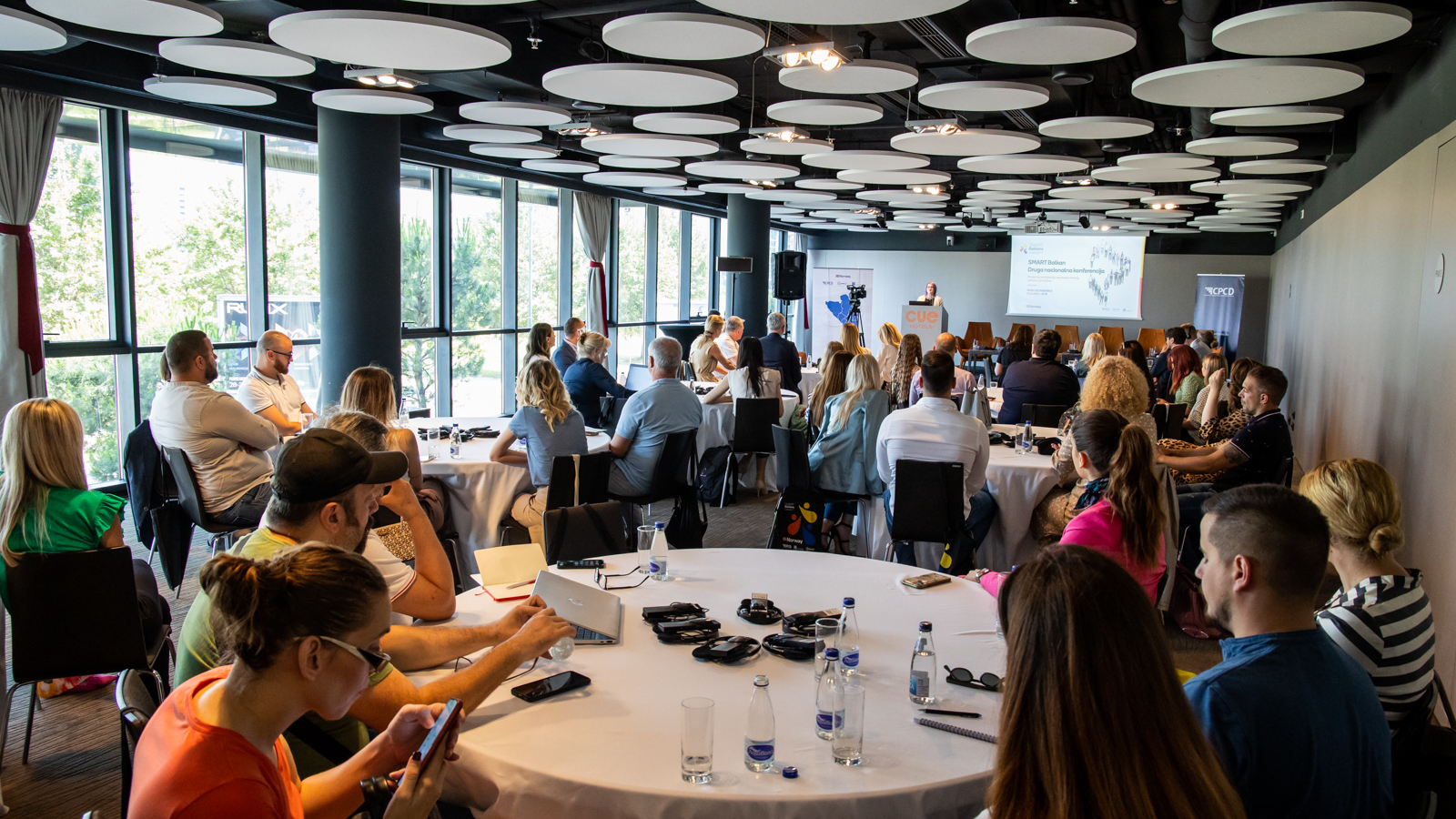The second national conference of the SMART Balkan project for Montenegro, held in Podgorica on the topic Recipe for revitalizing the reputation of the civil sector in Montenegro, gathered representatives of civil society organizations, institutions, and the academic community.
Stefan Almehagen Sandstad, First Secretary at the Royal Norwegian Embassy in Serbia, Montenegro, and North Macedonia. He emphasizes that SMART Balkans represents a comprehensive program of Norwegian support to civil society throughout the Western Balkans and stated: “Our ambition is to enable local civil society organizations to become more resilient, and more adaptable, as well as to respond even better to the needs of society. Our priorities are economic and social development, security and stability, and good governance”.
During the Conference, the possibilities for applying for SMART Balkan funds were presented, with an emphasis on the open call for the allocation of regional grants until the end of the month, intended for consortia of at least three organizations from three Western Balkans countries, and/or formal or informal regional networks for projects related to security and stability and governance, with a strong regional dimension. The second public call for CORE grants applications was also announced, which will be opened on June 30, 2023.
Also, new contracts were signed with four organizations from Montenegro for the implementation of National interventions projects, supported with the amount of EUR 199,085.61, which thus joined the previously awarded 126 projects in the amount of about EUR 4,607,112.00.
National interventions projects in Montenegro will be implemented by:
- Montenegrin Pan-European Union
- NGO MANS
- Center for the Development of NGO (CRNVO)
- Human Rights Action (HRA)
Detailed information about the awarded organizations is available at the link: https://smartbalkansproject.org/grants/montenegro-grants/national-interventions-me/
The panelists at the accompanying and dynamic panel discussion were Bojan Baća, University of Gothenburg, University of Montenegro, member of BiEPAG, Dina Bajramspahić, civil activist, Jovana Marović, former Minister of European Affairs, Dragan Koprivica, director of the Center for Democratic Transition and Velibor Zolak, marketing expert. The discussion was moderated by Dajana Cvjetković, SMART Balkan project manager.
The speakers had conflicting views on whether revitalization is necessary or not, but they agree on one thing – it is necessary to continuously and strategically work on improving the image of civil society organizations, through investment in professional and institutional growth and development, and the creation of true strategic partnerships based on on values. This is not possible without a clear identity of the organization based on strong program activities, integrity, and the need to be an active actor in the development of Montenegrin society. The message from the panel was that fluctuation of people is a natural process that is not necessarily negative for the organization, the sector, or society as a whole.
Strong civil society organizations that respect the trust of citizens, the international community and the public sector have the power to influence social and political processes in order to improve the living standards of the population and contribute to the development of society and the state.
“Trust that is losing strength significantly damages the reputation of the civil sector. The reasons why it is losing strength i.e. reputation, not only in Montenegro but also in the entire region of the Western Balkans, were the focus of the accompanying panel discussion, which also offered ingredients for revitalizing the reputation of the civil sector in Montenegro,” emphasized Dajana Cvjetković, manager of the SMART Balkans project.
The project SMART Balkans – Civil society for Shared Society in the Western Balkans is implemented in six Western Balkans countries by the Centar za promociju civilnog društva (CPCD) from Bosnia and Herzegovina, in partnership with the Institute for Democracy and Mediation (IDM) from Albania and the Center for Research and Policy Making (CRPM) from North Macedonia, and is financially supported by the Norwegian Ministry of Foreign Affairs with an amount of more than 17 million EUR, of which 85% will be distributed during the four-year period to strengthen organizations in Albania, Bosnia and Herzegovina, Montenegro, Kosovo, North Macedonia and Serbia.








